
florida ground cover plants Click to Enlarge Parsoni Juniper but I like this turned so that
Juniperus Sabina. $ 3.00 inc.GST. Add to cart. Common Name - the Savin Juniper is a low growing, spreading juniper that withstands very tough conditions, often used in rockeries and roadside planting. It's silver Green flat growing foliage is perfect for sprawling over retaining walls, erosion control or blocking out weeds in low.

FLOWERWOOD 2.5 Qt. Parsoni Juniper Evergreen Groundcover Shrub 3610Q The Home Depot
Juniperus conferta is a dense, evergreen shrub native to the seacoast of Japan and Sakhalin Island. With prickly blue-green foliage, the Shore Juniper grows as a low-spreading, creeping plant, making it an excellent ground cover plant type.. An excellent ground cover for dry, sandy soils, and poor soils in general, J. conferta works perfectly in well-drained soils in retaining walls.

13 Best Ground Cover Plants for Your Landscape Hort Zone
The groundcover group includes types ranging from a few inches to 2 to 3 feet high. Some species, such as creeping juniper, spread 5 to 6 feet. Others only spread 18 inches. Spacing of the plants depends on the species used. During the first years after planting, mulch will help keep the soil cool and the weeds down.

Groundcover Junipers New for 2017 HorticultureHorticulture
Characteristics of Creeping Juniper Ground Cover. When it comes to finding the perfect ground cover for your garden or landscaping project, creeping juniper is an excellent choice. This evergreen plant offers a range of characteristics that make it a popular option for many gardeners. Let's explore some of the key features that make creeping.
Creeping Juniper (Juniperus horizontalis) Care and Growing Guide
Soil: Juniper ground cover prefers dry, well-drained, sandy soil with lots of sun. It's important to avoid planting it in heavy, poorly draining, moist soil as this can kill the plant. If you have heavy soil, J. horizontalis is a variety that can tolerate it. Adding well-rotted compost can help improve sandy or clay soil. Sunlight:
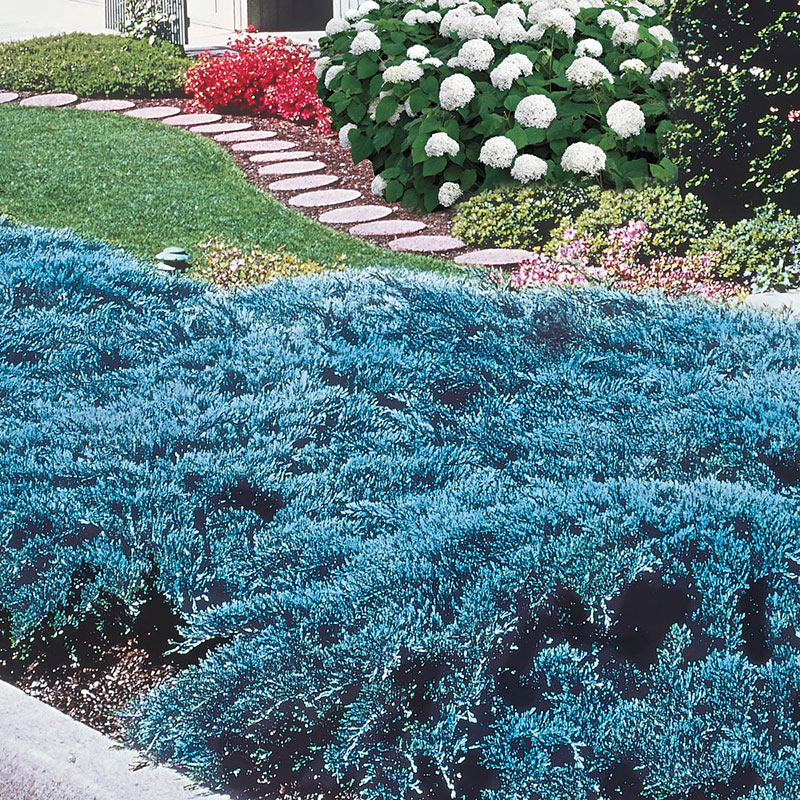
Blue Rug Juniper Ground Cover Spring Hill Nurseries
At the most practical level, these ground covers are vigorous growers that will help you suppress common lawn weeds and other unwanted plants. When it comes to beautifying your landscaping, they are superior to grass because they don't have to be mowed.

A few of my favorite ground covers Plant Lust
This helps retain more of the rooting hormone and reduces the chance that you'll damage the cut end. Firm the soil around the cutting and water so the soil feels moist, like a well-wrung-out sponge. Place it in bright, indirect light. Allow the surface of the soil to dry out in between watering.

Blue Rug Juniper Ground cover plants, Landscaping shrubs, Evergreen shrubs
Juniperus conferta All Gold. The All Gold Juniper is a stunning evergreen conifer ground-cover with pale green to bright yellow berry-like cones. Fine leafed, aromatic foliage compliments this juniperus variety's perfect low maintenance nature. Also being fast growing it is hardy to all environments including frost, salt, wind and sandy soils.
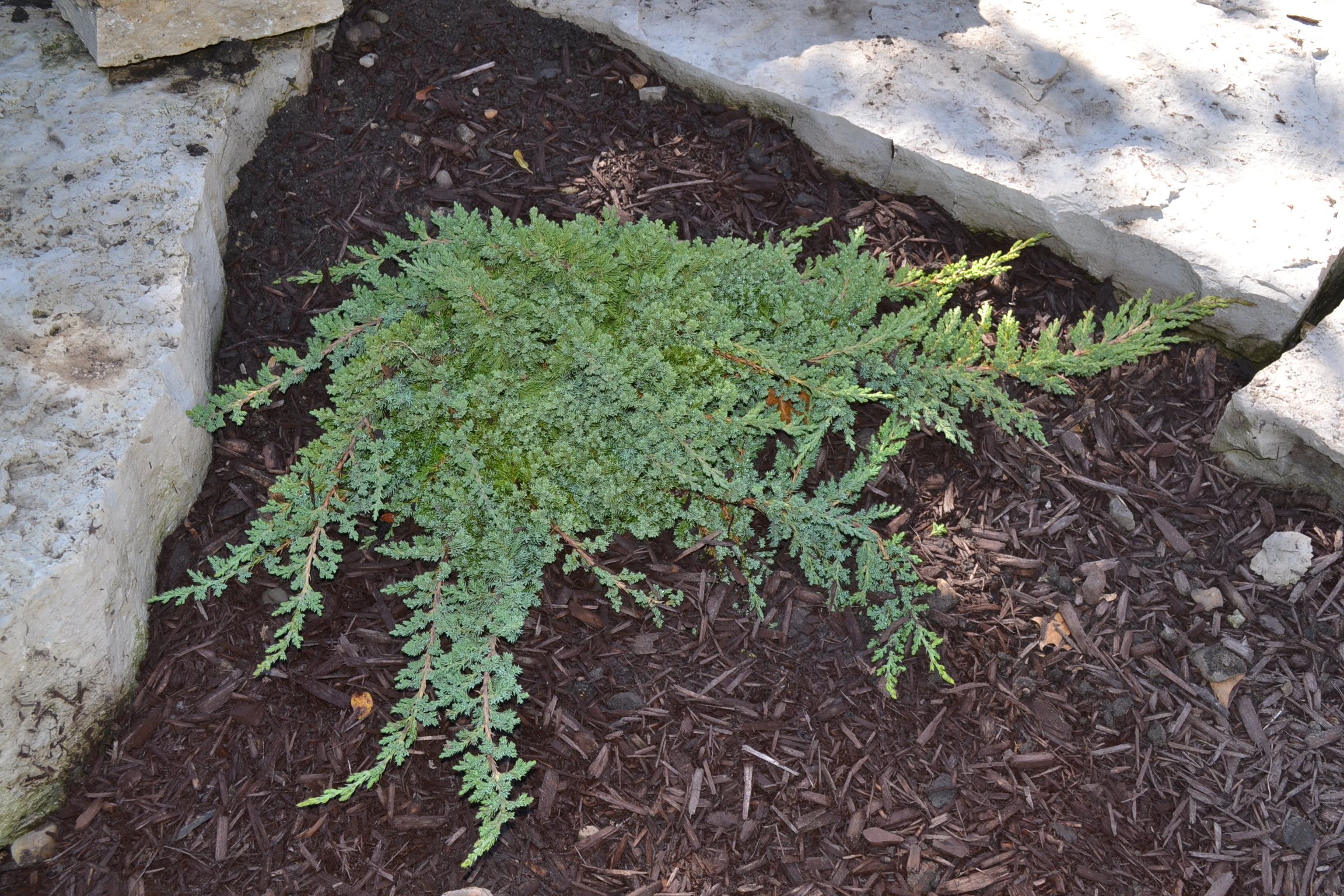
Dwarf Procumbens Juniper is a very hardy ground cover evergreen.
Creeping juniper needs full sun—at least six hours of direct sunlight each day—to thrive. If planted in a shaded location, it will not spread or have vibrant color. Soil Part of the appeal of creeping jupiter is the fact that it's so adaptable. While it has a preference for sandy soil with light to medium moisture, it isn't particularly fussy.
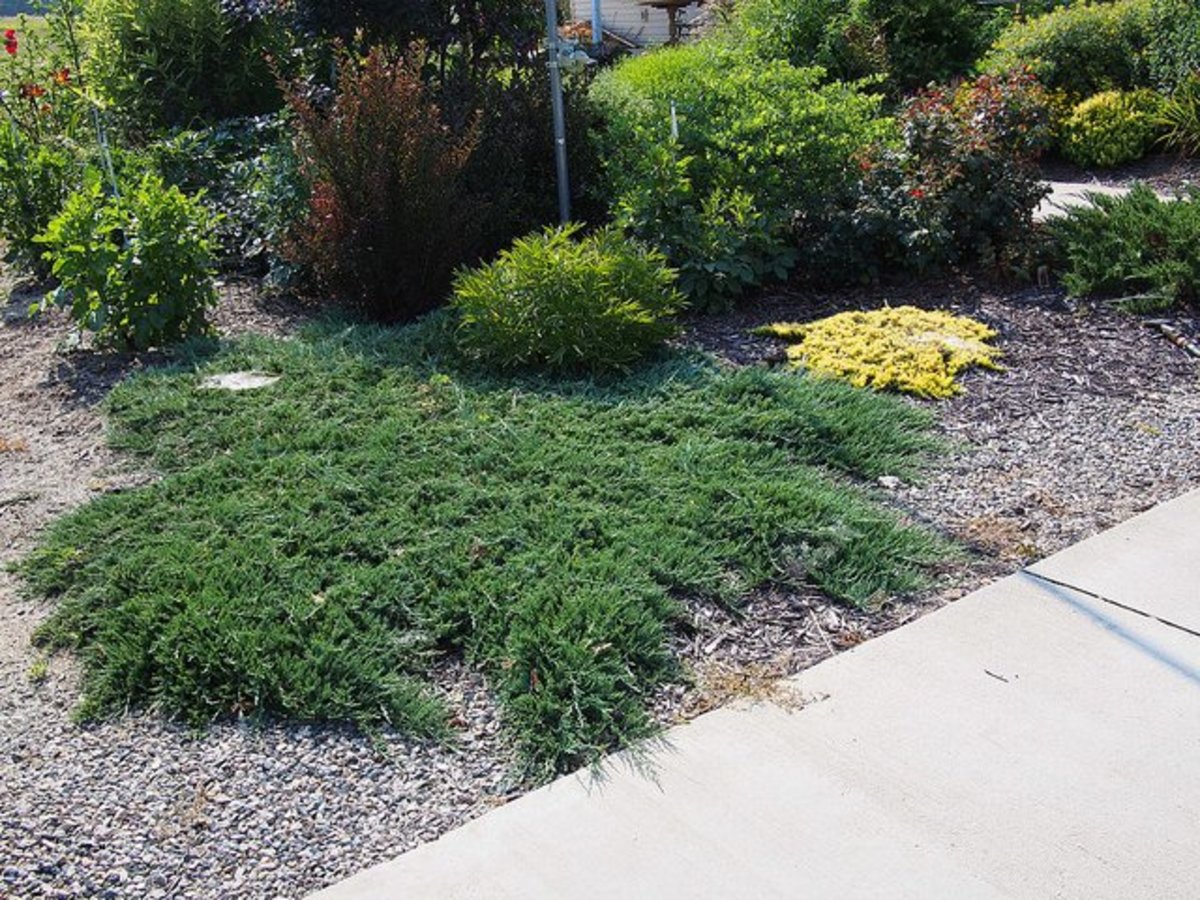
Creeping Juniper Ground Cover Types, Care, and Propagation Dengarden
Juniper ground cover is a great way to fill in garden gaps around borders, patios, pathways and rockeries. Different juniper varieties offer a wide range of dense, mat-forming foliage in heights to suit any need. These plants come in steely blues, minty greens, cheerful golds and variegated options.
Creeping Juniper Care and Growing Guide
Creeping juniper, sometimes also called creeping cedar, is a low-lying evergreen groundcover. Within the taxonomy of the plant kingdom, they are referred to as Juniperus horizontalis. How Large Does It Grow? Although there are several varieties, they all grow usually no more than two feet tall, and they will spread and extend roots as they do so.
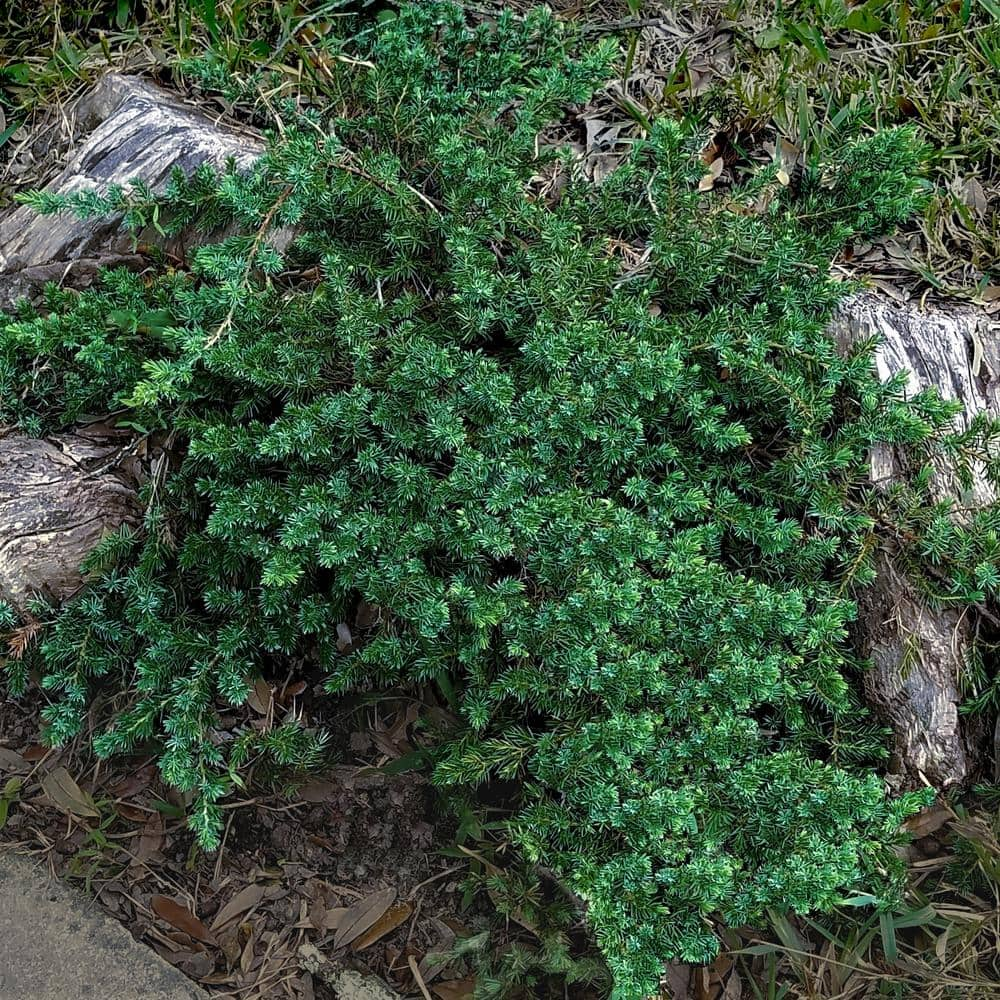
2.5 Qt. Blue Pacific Juniper Evergreen Groundcover Plant3440Q The Home Depot
Description. Juniperus conferta - shore juniper. APPEARANCE : Hardy dense mat-forming groundcover with dark evergreen conifer-like foliage. Leaves are fine and slender with a point at the tip. USE IN: Mediterranean style gardens, rockeries and seaside gardens. weed suppressing, bank binding. Resilient and tough - often used for urban planting.
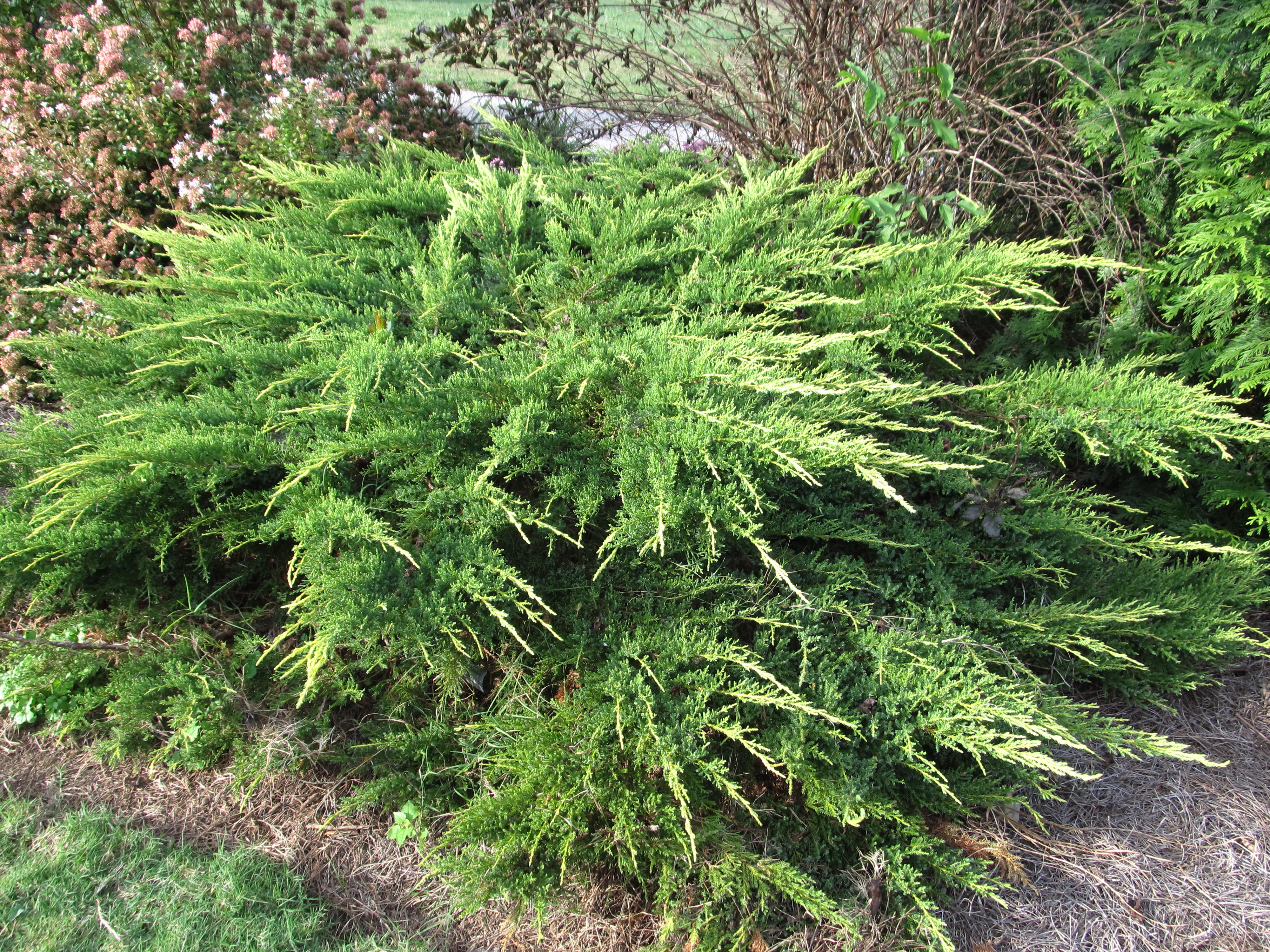
Three New Spreading Junipers Waking Up Landscapes What Grows There Hugh Conlon
Juniper Ground Covers SERIES 17 | Episode 08 There are places in the garden where you need a good, tough, weed suppressing groundcover. When it comes to that sort of plant you can't beat ground-covering junipers. Junipers are trees and shrubs native to the northern hemisphere. They are members of the cupressus family.
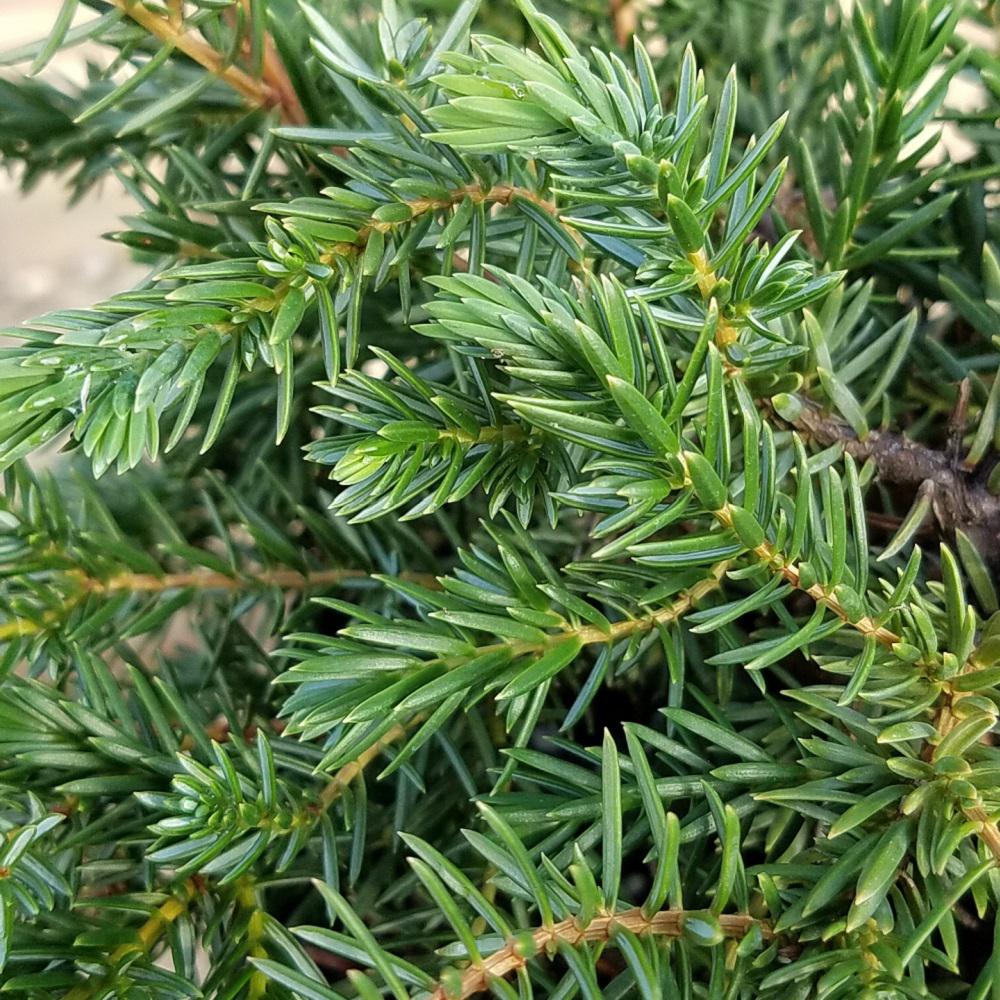
2.5 Qt. Blue Pacific Juniper Evergreen Groundcover Plant3440Q The Home Depot
This low-growing evergreen ground cover is a tough perennial that you can grow anytime between early spring and late fall. However, the best time to plant is in the spring when the temperature rises. Spring is ideal, as it allows the roots to get set before hot and dry weather takes over.

Pin on Landscape Plants
Most of the Ground Cover and Spreading Conifers are Junipers. These are extremely hardy and are available in a variety of colours, shapes and textures. Some form a very dense flat ground cover which are ideal for suppressing weeds. Others have branches spreading out at an angle; a great feature on a steep bank.
:max_bytes(150000):strip_icc()/shore-juniper-growing-profile-3269187-05-297a4252a561446f907e96af102a27d3.jpg)
Growing the Shore Juniper in the Home Garden
1. Choose a spot with full sun, if possible. Junipers prefer dry, well-drained, sandy soil with lots of sun. Avoid planting them in heavy, poorly draining, moist soil. 2. Dig a hole that is twice as wide and just as deep as the root ball of your juniper plant. 3. Mix in some well-rotted compost to improve sandy or clay soil. 4.